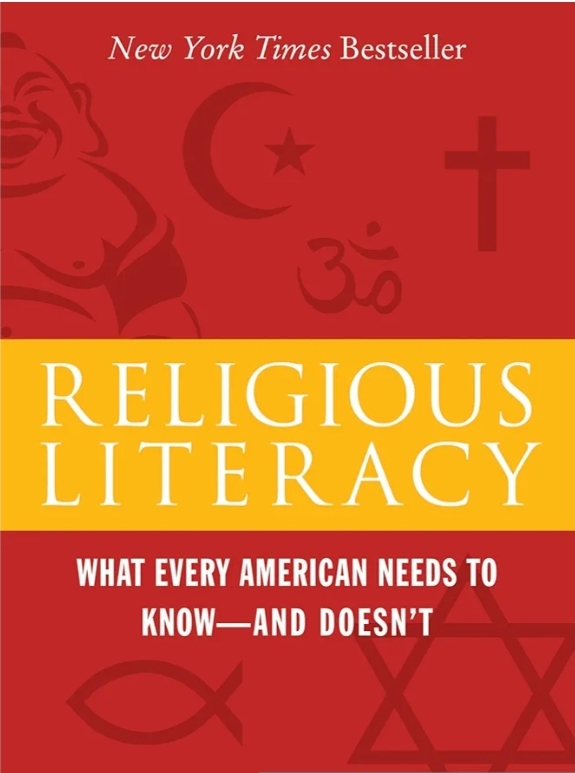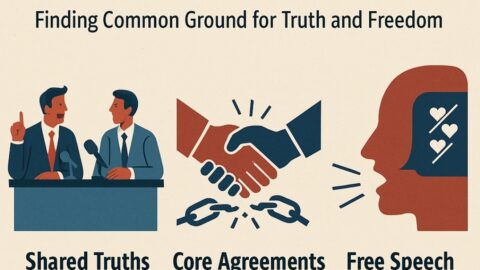Stephen R. Prothero’s Religious Literacy: What Every American Needs to Know—And Doesn’t is a compelling exploration of the decline in religious knowledge among Americans and the consequences of this ignorance for public life. Prothero argues that despite the deep religious diversity and history in the United States, most Americans are remarkably uninformed about basic religious concepts, practices, and history. He emphasizes that this lack of religious literacy has serious implications for both civic life and the ability to engage in meaningful dialogue about important social and political issues.
Key Themes and Concepts:
- Religious Ignorance in America: Prothero demonstrates that many Americans, while professing religious faith, know very little about their own religion or the religions of others. He offers examples of widespread ignorance, such as people being unable to name the Ten Commandments or basic figures in Christianity like the apostles.
- Importance of Religious Literacy: He argues that religious literacy is crucial for civic engagement and participation in democracy. In a country where religion influences so much of public discourse, from political debates to social issues, Prothero suggests that understanding religion is necessary for informed citizenship. Without a basic knowledge of religious traditions, Americans are ill-equipped to discuss or understand global conflicts or domestic policies that involve religion.
- Educational Shortcomings: Prothero critiques the American education system for its lack of emphasis on religious education. He notes that in an increasingly secular and diverse society, schools often avoid teaching religion, leading to widespread ignorance. However, he asserts that teaching about religion—without proselytizing—is key to fostering understanding and tolerance.
- Call for Reform: The book calls for a renewal of religious education, particularly in schools, where students can learn about the major world religions and their historical and cultural impact. Prothero argues for a curriculum that includes basic knowledge of religious traditions, texts, and practices, not just for religious people but for all citizens.
Stephen Prothero explores how religion, particularly Christianity and the Bible, was foundational in early American life. During the founding period, the Bible was widely read and referenced, not only in churches but in homes and schools as well. Prothero notes that in the early history of the United States, religious literacy was much higher because the Bible was a central text in education and daily life. It was commonly used to teach reading and writing, and it shaped the moral and ethical frameworks of American society.
Bible’s Influence on Early America:
- Education and Daily Life: The Bible was the primary textbook in early American schools, and many families read it regularly at home. Prothero points out that the widespread reading of the Bible ensured that Americans were well-versed in its stories, values, and teachings, which influenced public discourse and moral decision-making.
- Moral and Civic Foundations: The Bible’s teachings, particularly those about justice, equality, and human dignity, played a role in shaping the political and legal philosophies of the American founders. Many of the nation’s founding documents, such as the Declaration of Independence, reflect biblical principles about liberty and human rights, even though the Constitution itself does not explicitly reference Christianity.
- Decline in Religious Literacy: Prothero contrasts this early biblical influence with the decline in religious literacy in modern times. He argues that as America became more secularized and diverse, knowledge of the Bible and religious principles waned, leading to a disconnect between contemporary Americans and the religious foundations of their nation’s early history.
In summary, Prothero’s work emphasizes the historical significance of the Bible in shaping America’s early culture and values, even though religious literacy has significantly declined in more recent times. This decline, he argues, impacts the ability of citizens to engage in meaningful discussions about religion and its role in public life.







